Centuries of impunity is Russia's Weapon. Why can there be no peace without justice?
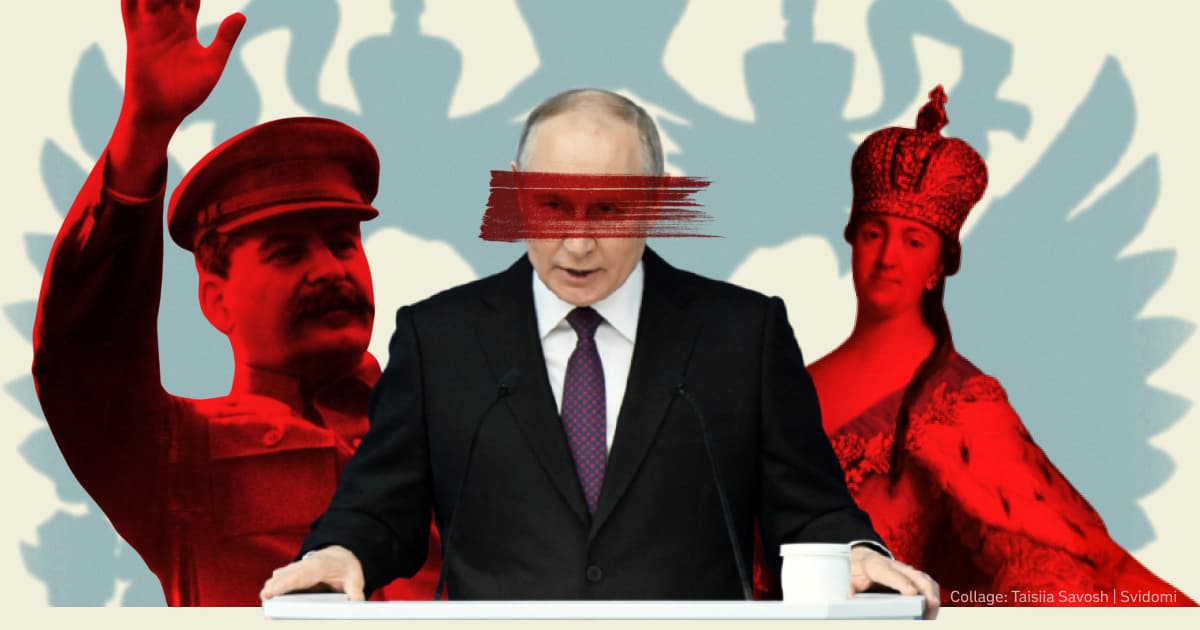
The war Russia is waging against Ukraine today is not an accident. It is not an isolated instance of aggression drawn from history, nor merely the result of modern Russia's attitude toward an independent Ukraine. It is a centuries-long history of Russian aggression marked by oppression, genocide, and the destruction of Ukrainian identity.
Russia launched its war against Ukraine partially because it has never been held accountable for its past crimes. This impunity has led to repeated tragedies – from the destruction of the Hetmanate and the colonisation of Ukraine by the Russian Empire to the Holodomor and Soviet-era repressions. Now, the Russian Federation is continuing this chain of aggression with its modern war against Ukraine.
Ukraine is currently at a historic crossroads that appears to be the beginning of peace negotiations to end the war. The United States, the European Union, Turkey, and Middle Eastern countries have joined the process, holding negotiation meetings, issuing statements, and holding meetings with Ukraine and Russia. But so far, no one has raised the question of whether Ukraine will receive justice from the end of the war and whether Russia will be punished. What will the peace process look like? Will Ukraine's prisoners of war and deported children get returned? What will happen to the occupied territories? Will Russia pay reparations for the destruction of infrastructure and entire cities?
Svidomi tells the story of the continuity of Russia's impunity toward Ukraine and why justice and accountability for Russia are crucial to ending the war — otherwise, aggression against Ukraine could happen again.
History of Russian impunity
Early February 1919. The Bolshevik army captured Kyiv and established the Moscow-controlled Ukrainian Socialist Soviet Republic. The Bolsheviks organised pogroms (mob attacks, either approved or condoned by authorities, against the persons and property of a religious, racial, or national minority — ed.), killings, and mass repression in Kyiv. The Ukrainian People's Republic (UNR) failed to retake the capital and regain control. From that moment on, Soviet totalitarianism ruled Ukraine.
In the first days of Kyiv's occupation, the Bolsheviks began collecting money from supposedly wealthy citizens under the pretext of fighting the "bourgeoisie". In reality, they were targeting Ukrainian intellectuals, identity, statehood, and Ukraine itself, which had just emerged from the ruins of the Russian Empire.
The Russian Soviet Federative Socialist Republic (RSFSR) was no different from its predecessor, the Russian Empire. After quickly establishing control over most of Ukraine (the Western Ukrainian People's Republic had been occupied by Poland in 1918), the RSFSR began exporting Ukrainian coal, sugar, grain, military equipment, and industrial products.
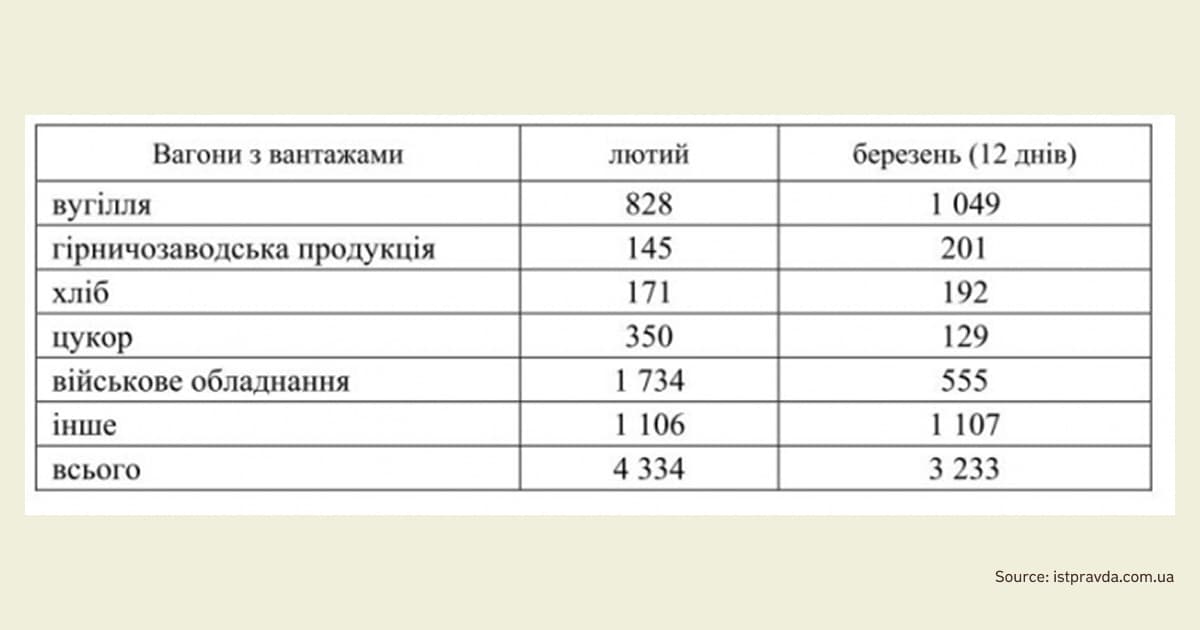
1932-1933. Russia organised the Holodomor in Ukraine. Modern Russia tried to argue that it was due to a "bad harvest" and natural causes. However, even NKVD archival documents prove that the famine in Ukraine was a deliberate policy of Moscow to allegedly eliminate the "bourgeoisie" in the villages, carry out "dekulakisation," and impose socialism and communism.
Millions of Ukrainians perished during the Holodomor. Demographers estimate the death toll at 3.9 million. Exact figures, however, are impossible to calculate because of decades of data suppression and cover-ups. It was genocide, as the Holodomor policy and the "Law on Five Ears of Grain" were explicitly aimed at destroying Ukrainians.
Russia has repeatedly tried to erase the Ukrainian identity. Even during the Russian Empire, the Ukrainian language was banned over a hundred times. Ukrainian books were banned, Ukrainian-language education was forbidden in schools, books in Ukrainian were burned, and theatrical performances and songs in Ukrainian were forbidden. For the Russian Empire, Ukraine was an inseparable part of the state and a resource to be exploited for the benefit of St. Petersburg.
The terrifying word "Sandarmokh" refers to a forest area in the Republic of Karelia, now part of the Russian Federation. In the 1930s, the NKVD (the interior ministry and secret police of the Soviet Union from 1934 to 1946 — ed.) executed more than 9,500 people there. Among them were 287 Ukrainians, including 23 writers. Between October 27 and November 4, 1937, Soviet authorities murdered director Les Kurbas, writers Mykola Kulish and Valerian Pidmohylnyi, poets Marko Voronyi and Mykola Zerov, and other artists.
Since the beginning of the full-scale invasion, Russia has resumed its practice of eliminating Ukrainian intellectuals. Russian troops killed Ukrainian writer Volodymyr Vakulenko during the occupation of Izium, and a rocket attack in Kramatorsk killed writer Viktoriia Amelina. The "Nedopysani" project has already identified 227 Ukrainians engaged in literary work — writers, poets, translators — who died in the Russian-Ukrainian war. These are lost cultural figures whose works were destroyed by Russia.
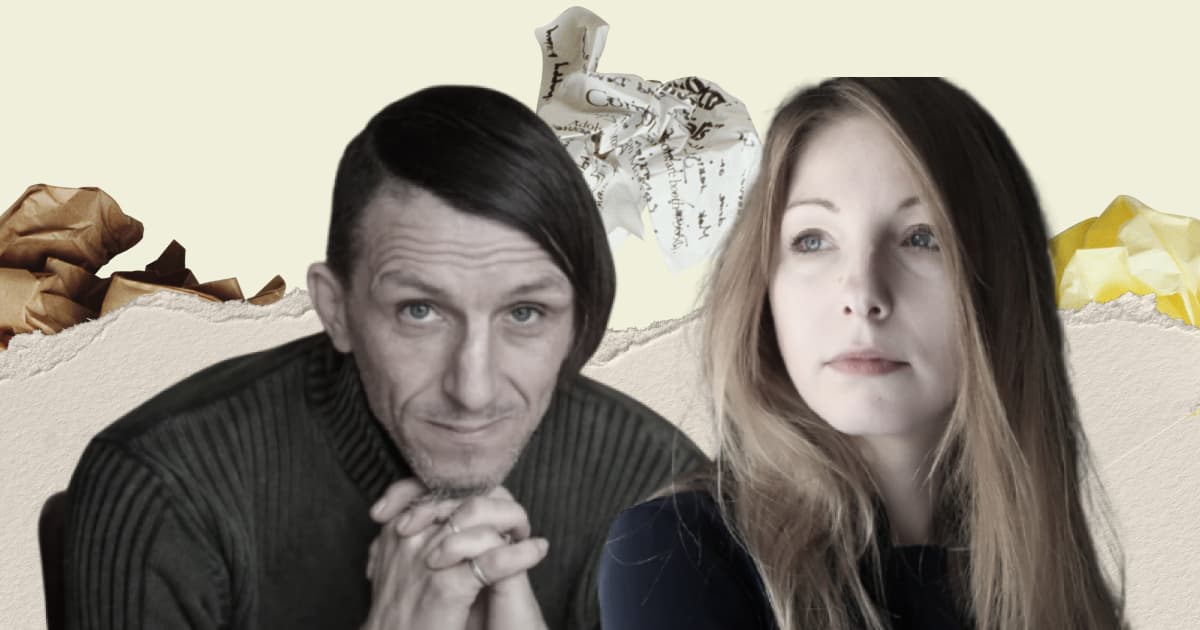
Repression and extermination have also affected Ukraine's indigenous peoples. The Russian Empire and later the Soviet Union subjected the Crimean Tatars to persecution forced deportations, and killings because their very existence undermined the myth of the "eternally Russian Crimea. On April 17, 1938, the Communists executed dozens of prominent figures in the arts, culture, education, science, politics, and civil society. On May 18, 1944, the USSR decided to deport the Crimean Tatars. In just three days, 200,000 people were transported in cattle cars designed for livestock. During the 11-year occupation of Crimea, Russia continued its genocidal practices against the Crimean Tatars, only changing its methods.
Despite the repression, the Ukrainian resistance never disappeared. The dissident movement of the 1960s-1980s, led by figures such as Vasyl Stus, Viacheslav Chornovil, and Levko Lukianenko, fought for the rights of Ukrainians. However, most activists ended up in labour camps or were killed.
Neither the Russian Empire, the Soviet Union, nor the modern Russian Federation has ever been punished for its crimes against Ukraine, Ukrainians, Crimea, Crimean Tatars, Jews, or even Russians living in Ukraine. This historical impunity — a chain of crimes against humanity, genocidal policies, information warfare, and historical erasure — has given Russia free rein. That is why it launched a full-scale invasion of Ukraine in 2022.
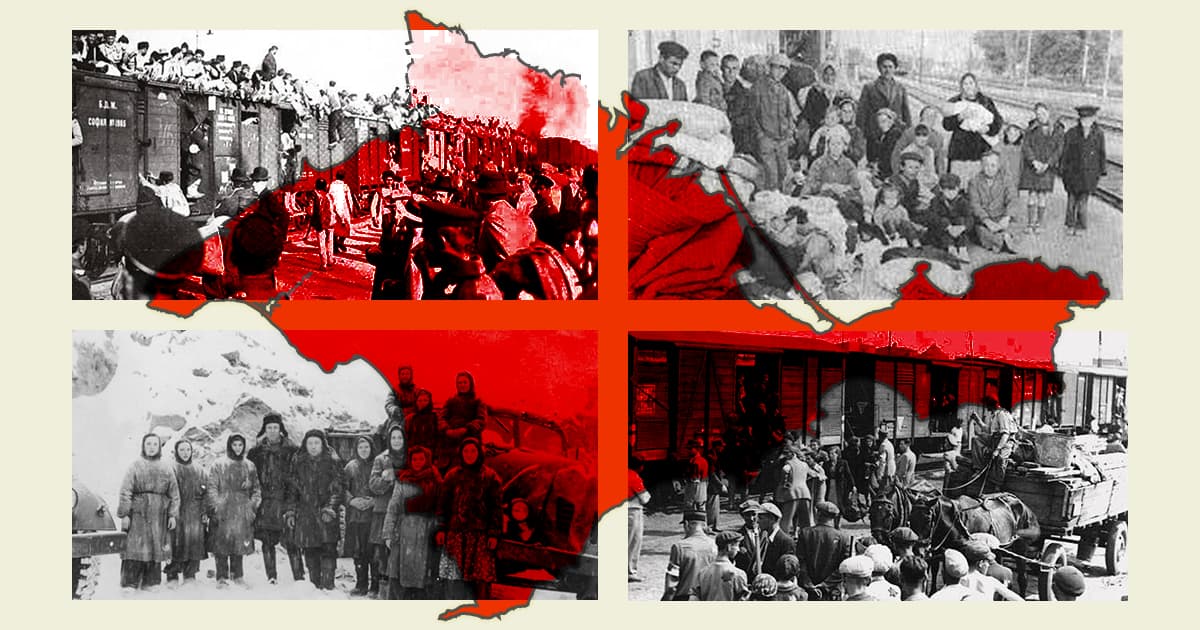
Vitalii Skalsky, Ph.D. in history and research fellow at the National Academy of Sciences of Ukraine, explains what "historical impunity" means and why Russia is waging war against Ukraine.
"First, we need to discuss the concept of 'historical impunity'. It probably refers to the lack of reflection on the past and the formation of a distorted perception of Soviet history in Russia. Russian society is so traumatised by the Soviet regime that it cannot comprehend (or rather, only vaguely suspect) its brutality and incompatibility with modern values. As a result, Russians have not shed their imperial complex. In their minds, Ukraine remains a part of Russia, and Ukraine's movement toward independence is seen as a 'betrayal' that must be 'punished,'" he explains.
Skalskyi believes that Russia is also waging war against Ukraine over “Russocentrism” — its version of history centred on the “Great Patriotic War,” omitting the Holodomor and the Great Terror, where Russians, the Russian Empire, and the USSR are “one of us.” At the same time, Poles, Jews, Crimean Tatars, the Polish-Lithuanian Commonwealth, Austria-Hungary, and Poland are “outsiders.”

"This war is about the right to write Ukraine's history. What we remember and how we remember it shapes our national identity. Our historical memory distinguishes us from others, from our neighbours. Especially from the Russians."
Impunity and imperial ambitions have led to numerous Russian crimes in its war against Ukraine. Ukraine has yet to investigate and expose the historical crimes of the Russian Empire and the USSR, while it is already gathering evidence of crimes against humanity and war crimes committed by Russia in the occupied Ukrainian territories.
Russia's crimes in the war against Ukraine
The Russian army has committed war crimes wherever it has occupied cities and villages in Ukraine. According to the deputy speaker of the Ukrainian parliament, Olena Kondratiuk, as of 2024, Russia is holding 28,000 Ukrainians in captivity, including journalists, priests, and civil activists. The Russians have illegally deported thousands of children from the temporarily occupied territories of Ukraine. The Russian Commissioner for Children's Rights, Maria Lvova-Belova, claims that Russia has taken more than 700,000 children from Ukraine.
Using rocket attacks, guided bombs, drones, and other means, Russia is wiping Ukrainian cities and villages off the face of the earth. Mariupol, Bakhmut, Izium, Soledar, and Avdiivka-these and hundreds of other settlements have been destroyed by Russian forces. In 2023, the former commander-in-chief of the armed forces, Valerii Zaluzhnyi, declared that "Marinka no longer exists." By that time, the city had become a defensive outpost. As of February 2025, the territory remains under occupation.
On the 1,000th day of the full-scale invasion, the General Prosecutor's Office reported that it had documented some 143,000 Russian war crimes in almost three years. On average, Ukrainian law enforcement agencies record 200-300 new crimes every day. Since then, this number has only increased.
Russians are committing sexual crimes against Ukrainians. As of May 2024, Ukrainian law enforcement agencies had recorded 296 cases of sexual violence, including 15 against minors. The Ukrainian ombudsman, Dmytro Lubinets, stated that "Russians are not deterred by gender or age.” The highest number of cases was documented in the Kherson region. Due to the occupation of Ukrainian territories, it is impossible to determine the exact number of such crimes committed by Russians, and the occupation itself allows them to continue.

Russians commit crimes against Ukrainians even in the "rear". The vast majority of Ukrainian POWs — over 95% — are tortured while in Russian captivity. According to the UN, Ukrainian POWs are tortured from their very first interrogation, beaten with metal rods and sticks, and subjected to electric shocks. These actions are ordered directly by the leadership of the Russian penitentiary system to its employees. This reflects the sense of impunity among Russians.
Russian troops also execute Ukrainian prisoners of war when they surrender. The General Prosecutor's Office is investigating 53 cases of the execution of 177 Ukrainian soldiers. These are only the cases known to Ukrainian law enforcement.
The Russians execute prisoners of war. On the night of July 28-29, 2022, the Russians shelled the penal colony No. 120 in the temporarily occupied Olenivka, Donetsk region. The building housed Ukrainian prisoners of war, including those from the Azovstal factory. The Russians claimed that an American HIMARS system carried out the strike, but in July 2023, the UN High Commissioner for Human Rights issued a statement confirming that no HIMARS missile had hit the colony in occupied Olenivka. Ukraine has since returned all the bodies of the deceased Ukrainian soldiers.
The head of the International Human Rights Initiative's War and Justice Department, Anna Rassamakhina, says Ukraine's law enforcement system faces an enormous challenge in investigating Russia's war crimes in Ukraine. She reports that Ukrainian courts have issued only about a thousand verdicts against Russians for war crimes, while the total number of documented crimes already exceeds 150,000.
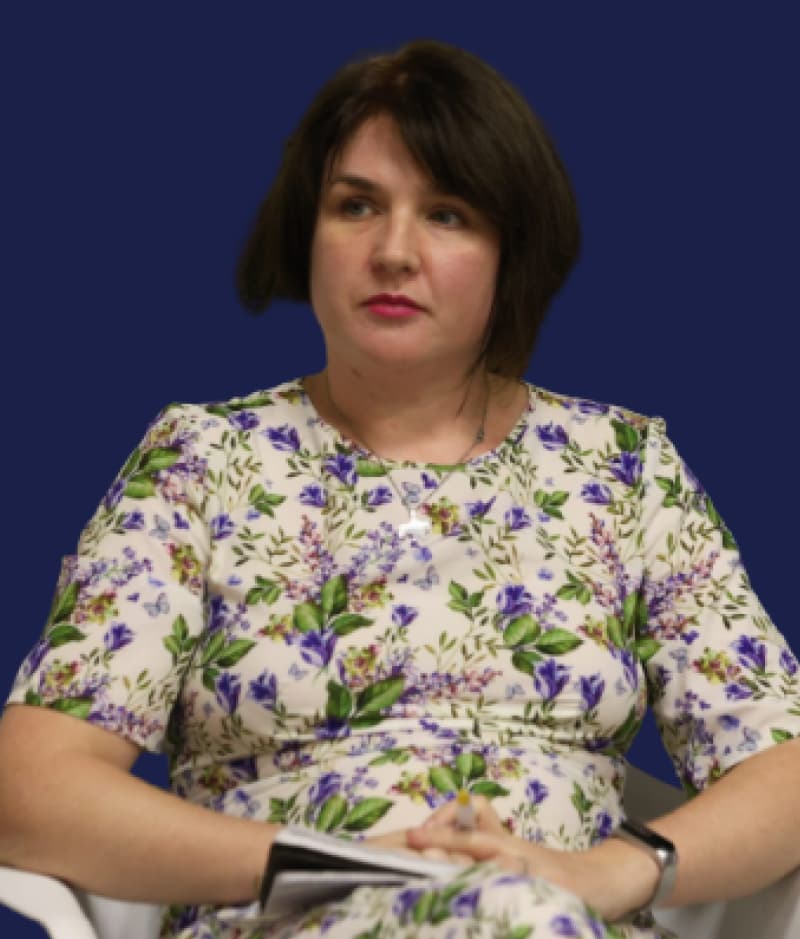
"Reading these verdicts, one gets the impression that individual Russian soldiers are committing crimes on their own initiative. At the same time, elements such as the large-scale, systematic nature and state policy of the Russian Federation. The Russians direct these crimes through numerous government structures both in Ukraine and in Russia and ensures their continuation, are not considered by Ukrainian law enforcement,"
she says.
Anna Rassamakhina believes that Ukraine's approach to law enforcement needs to change significantly. It is necessary to include analytical elements, systematisation and generalisation of data on these crimes. In addition, Ukrainian law enforcement must thoroughly investigate crimes against humanity committed by Russia in Ukraine.
New Russian crimes in Ukraine overshadow the crimes of the occupation that began in 2014. Kidnappings, beatings, and the number of political prisoners in Crimea, Donetsk, and Luhansk continue to increase. Russia considers all Ukrainians in the temporarily occupied territories to be its citizens and applies its laws to them. It violates international law, but it has not been held accountable. Meanwhile, Crimea has become an area of repression and political persecution. Russia is systematically imprisoning Crimean Tatars and Ukrainian activists on trumped-up charges.
But these crimes are only part of a much larger historical war that Russia has been waging against Ukraine for centuries. Vitalii Skalskyi explains that this war should be understood as a "war of independence" for Ukraine and as part of Russia's imperial policy.
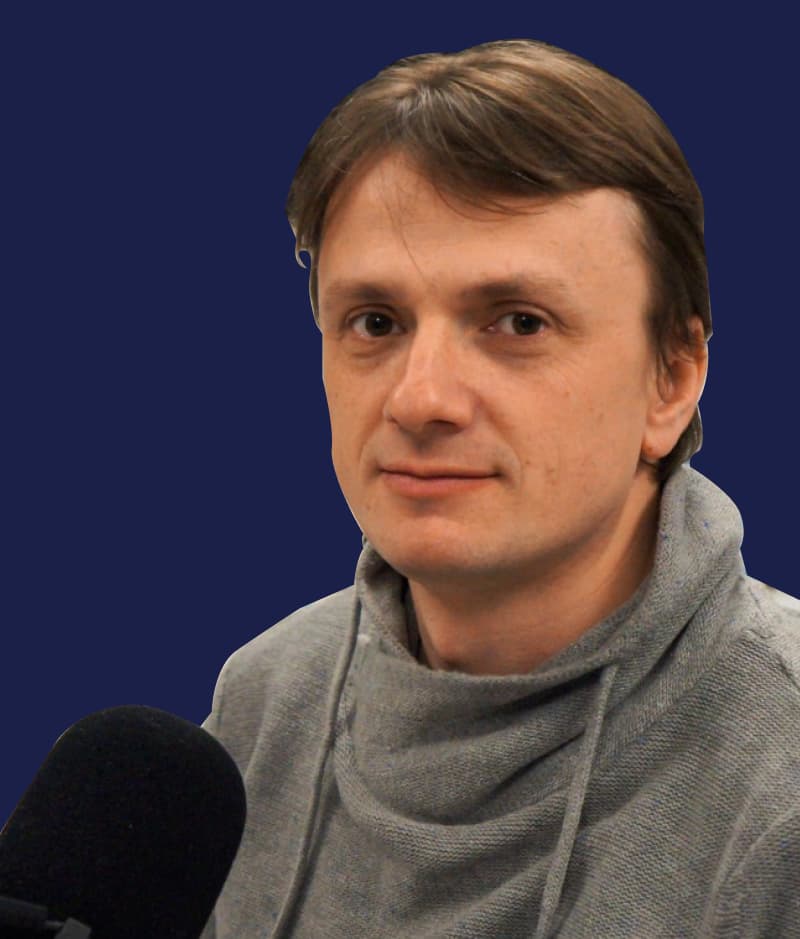
"The war is not just battles; it is constant attacks on Ukraine in various forms: from the Holodomor and the Great Terror to economic and political pressure. We have declared independence more than once, and each time, Russia has tried to destroy it — through gas and trade wars, the CIS, the occupation of Crimea and Donbas, and, since 2022, a full-scale invasion. It is all one war,"
he says.
Therefore, to achieve a lasting peace, which the leaders of the US, France and the UK are currently discussing, Russia must be held accountable for its crimes against Ukraine and Ukrainians. But is that possible?
Why does Ukraine need justice to achieve lasting peace?
"We need to write our own history, different from the version written for us by the Russians. We must mark our Ukrainian territory with monuments and toponyms that clearly distinguish it from Russian territory," says Vitalii Skalskyi.
History shows that if Russia goes unpunished for another round of crimes against humanity committed in Ukraine, these crimes will be repeated. Russia may change its form of government, its ideology, or even its name, but it remains a threat to Ukraine. Therefore, Ukraine must ensure security and justice to break this cycle of aggression, violence, destruction of Ukrainians, and crimes.
Ukraine has included strengthening its military and joining NATO in its plan to end the war. In addition, Ukraine has demanded the exchange of prisoners of war and the return of deported Ukrainians. However, the United States, which held its first direct negotiations with Russia on February 18, is not currently prioritising these issues in the potential negotiation process to end the war. Moreover, U.S. President Donald Trump has called Ukraine's NATO membership an "impractical" and "unrealistic scenario."
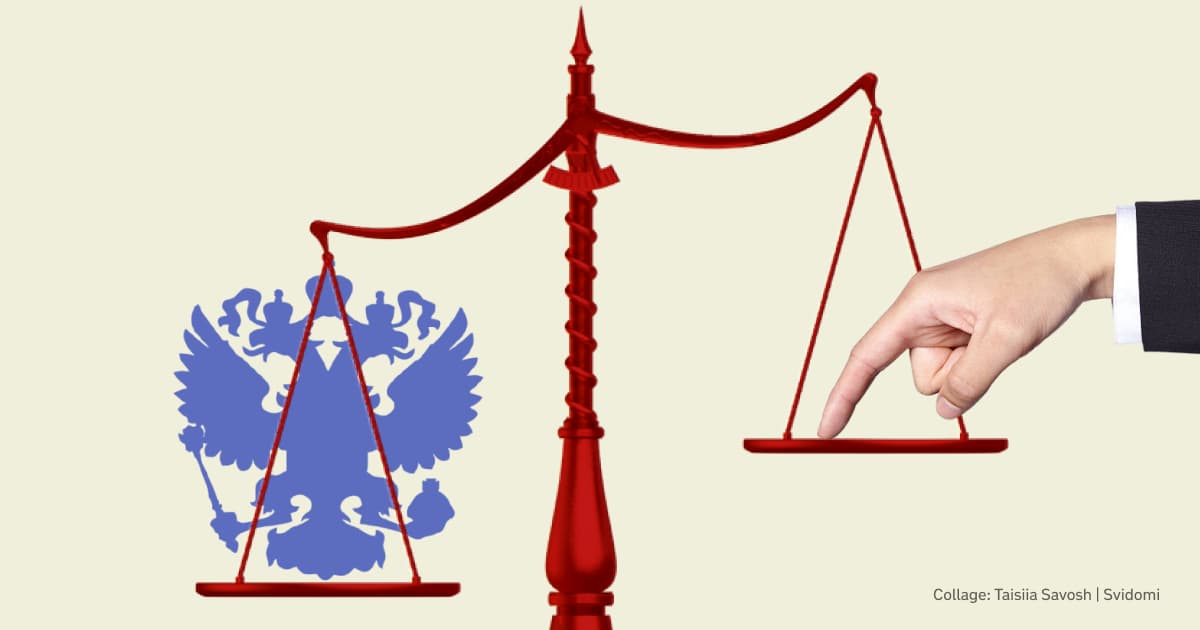
Justice must include holding perpetrators accountable through international tribunals. These steps are necessary because Russia uses impunity as a weapon, giving it confidence in the boundlessness of its power.
The International Criminal Court (ICC) is investigating crimes in Ukraine, including genocide, crimes against humanity, and war crimes. The ICC has issued arrest warrants for Vladimir Putin and Maria Lvova-Belova for the abduction of Ukrainian children; Sergey Shoigu and Valery Gerasimov for missile attacks on Ukrainian infrastructure; and Sergei Kobylash, commander of Russia's long-range aviation forces, and Viktor Sokolov, commander of Russia's Black Sea Fleet, for missile attacks on Ukraine.
Anna Rassamakhina, head of the War and Justice Department at the International Human Rights Initiative, notes that the ICC is the only body with jurisdiction to investigate crimes against humanity committed by Russians in Ukraine. But there are several problems.
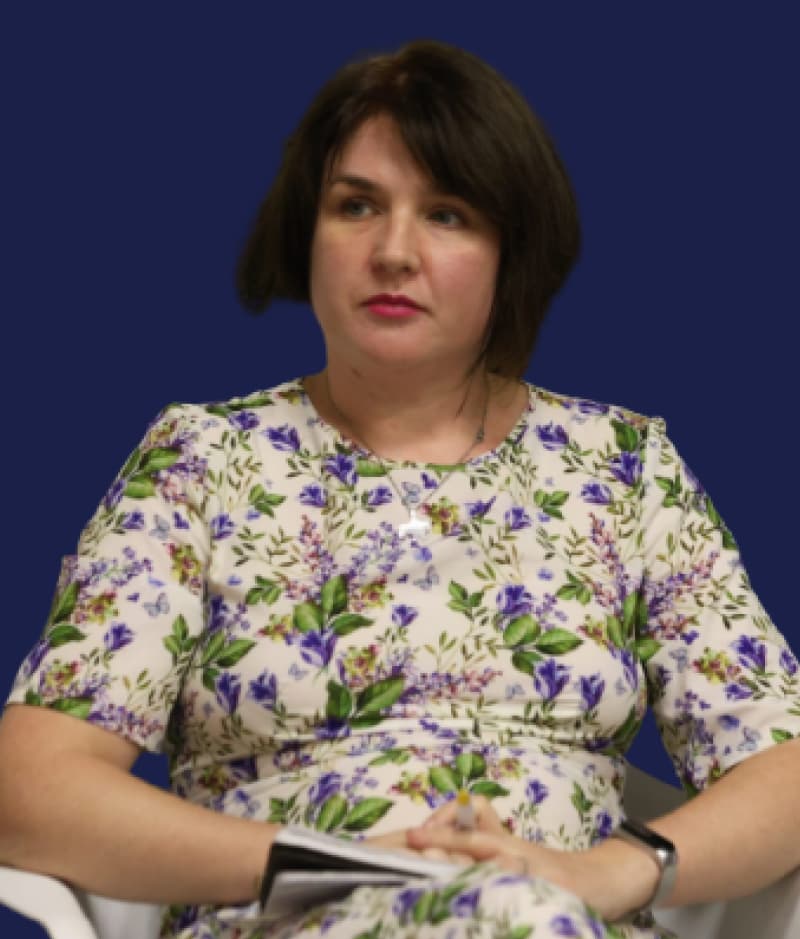
"First, we see that the ICC has issued a number of arrest warrants against Russian officials, but they cover only a limited number of crimes committed by Russia — such as attacks on civilian energy infrastructure and the deportation of Ukrainian children. However, the scale, number, and types of crimes, particularly crimes against humanity committed by Russia in Ukraine, are far greater. Unfortunately, we do not yet see the political will to investigate these crimes. These include the deportation of civilians — not only children, but also adults — as well as crimes committed in occupied territories, including killings, enslavement, and more,"
Rassamakhina explains.
She also notes that the ICC only handles cases in person, meaning that Russian officials must be arrested and brought to The Hague for trial. In 2024, Vladimir Putin visited Mongolia, a country that recognises the ICC's jurisdiction. But he was not arrested there.
"As of now, the arrest warrants issued do not pose a real threat to Russia's leadership. The often-discussed special tribunal for the crime of aggression will deal only with the crime of aggression. Although there has been talk of including crimes against humanity, genocide, and war crimes, the tribunal will focus solely on aggression. Currently, no international institutions are investigating crimes against humanity and war crimes in Ukraine, even though the Russia-Ukraine war is the most well-documented conflict in human history, with more than enough evidence available," Rassamakhina adds.
The second aspect of justice is reparations. Ukraine has suffered enormous destruction, with millions of people losing their homes, infrastructure damaged, and entire cities destroyed. According to the Kyiv School of Economics, Russia has caused more than $170 billion in damages to Ukraine. Some of this is impossible to calculate because of the occupation and war. The environmental damage caused by the occupation is also unknown.
The restoration of destroyed cities, the return of deported children, and the compensation of war victims must be financed by the aggressor state. However, Russia refuses to discuss reparations and even insists on lifting sanctions against itself. Ukraine's partner countries will be unable to decide about frozen Russian assets until 2024. Ukraine will only receive the interest on these frozen assets, not the assets themselves.
Anna Rassamakhina notes that there is currently no effective mechanism to ensure rapid compensation payments.
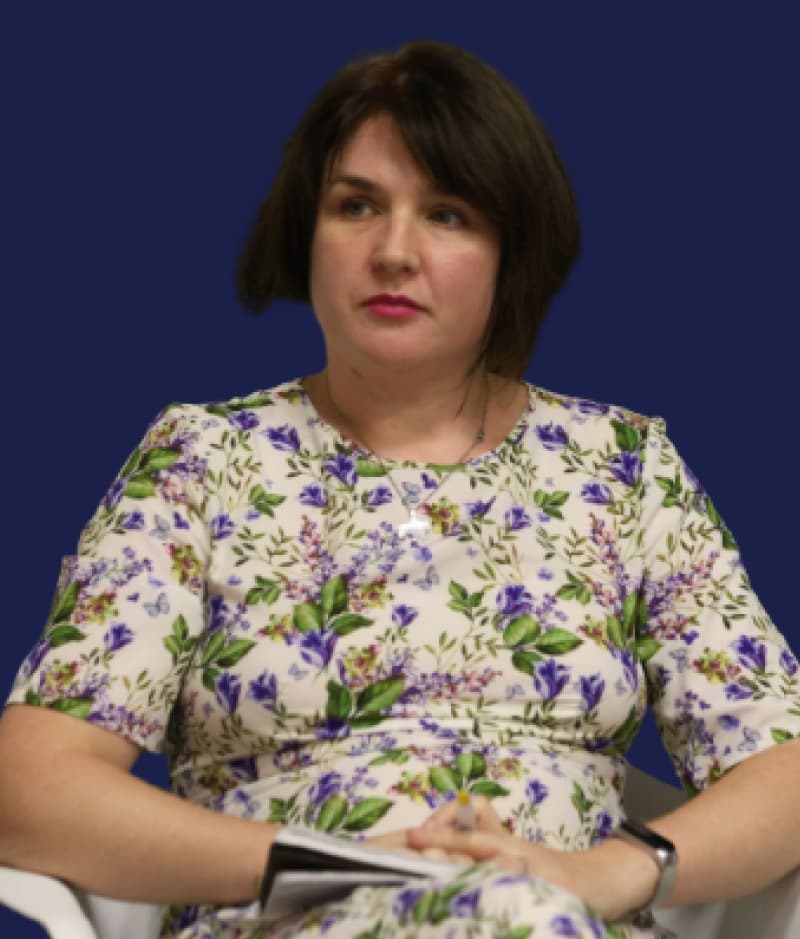
"At this point, we just have to wait for the Compensation Commission to start working and for payments to be made based on the damage register. Everything else depends on how the conflict evolves, how it ends, and what the balance of power will be at that time. Given the turbulent situation, making predictions challenging,"
she says.
However, financial responsibility alone is not the ultimate solution. Russia must accept the fact that Ukraine is an independent state, and the Kremlin's imperial ambitions must be dismantled once and for all. Russia's inability to accept Ukraine's independence is the root cause of this war. Maintaining control over neighbouring nations is a key pillar of Russian statehood, and as long as this ideology persists, the threat will remain.
Vitaliy Skalskyi, a Ph.D. in history and researcher at the National Academy of Sciences of Ukraine, believes that Russia must abandon its imperial mindset regarding its borders and sphere of influence.
"If Russia re-evaluates its past in accordance with modern human values, Russians will have a chance to get rid of their imperial complexes. They will no longer find themselves in situations like the invasions of Georgia, Chechnya, or Ukraine," says Skalskyi.
Both Ukraine and the world need a just peace and Russia’s punishment. Only then will peace be genuine and lasting, as the United States and the EU desire. Ukraine will not only rebuild but also develop without the looming threat of another Russian invasion.


